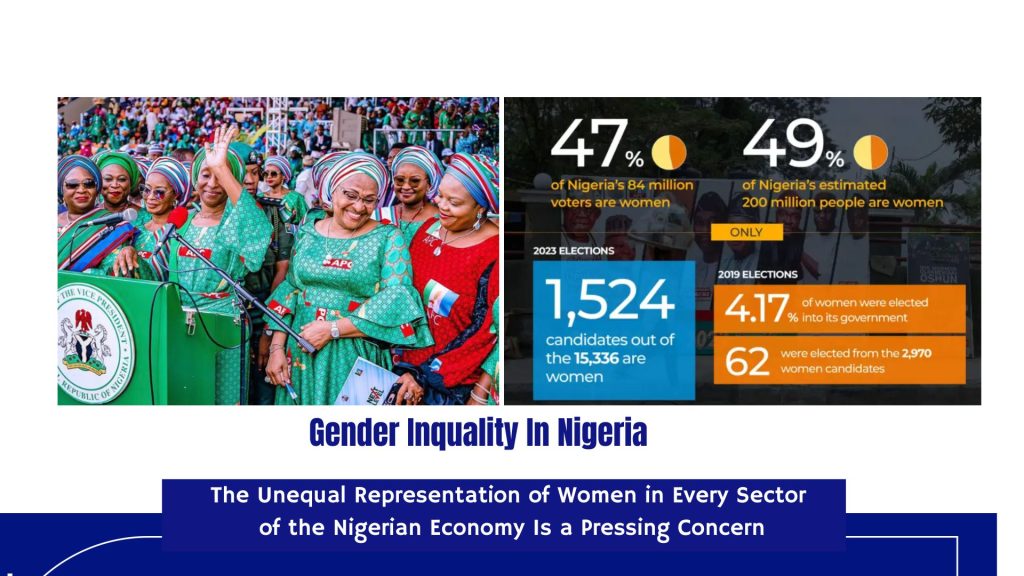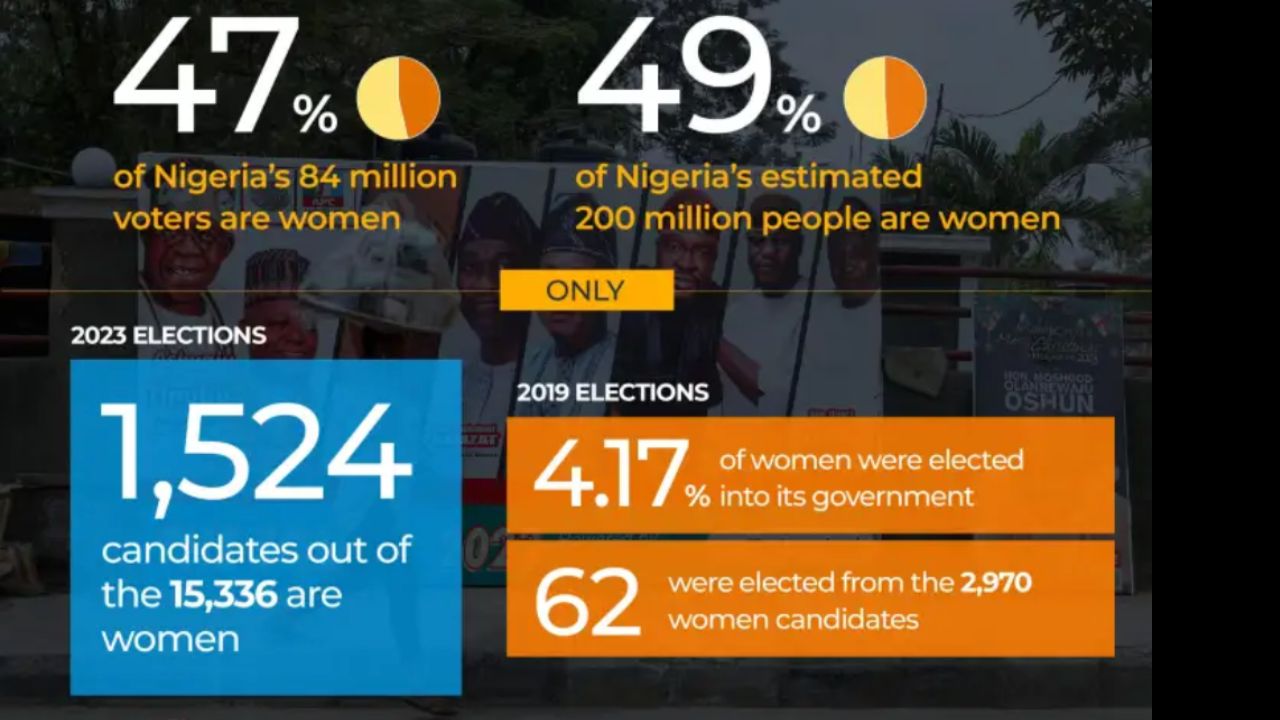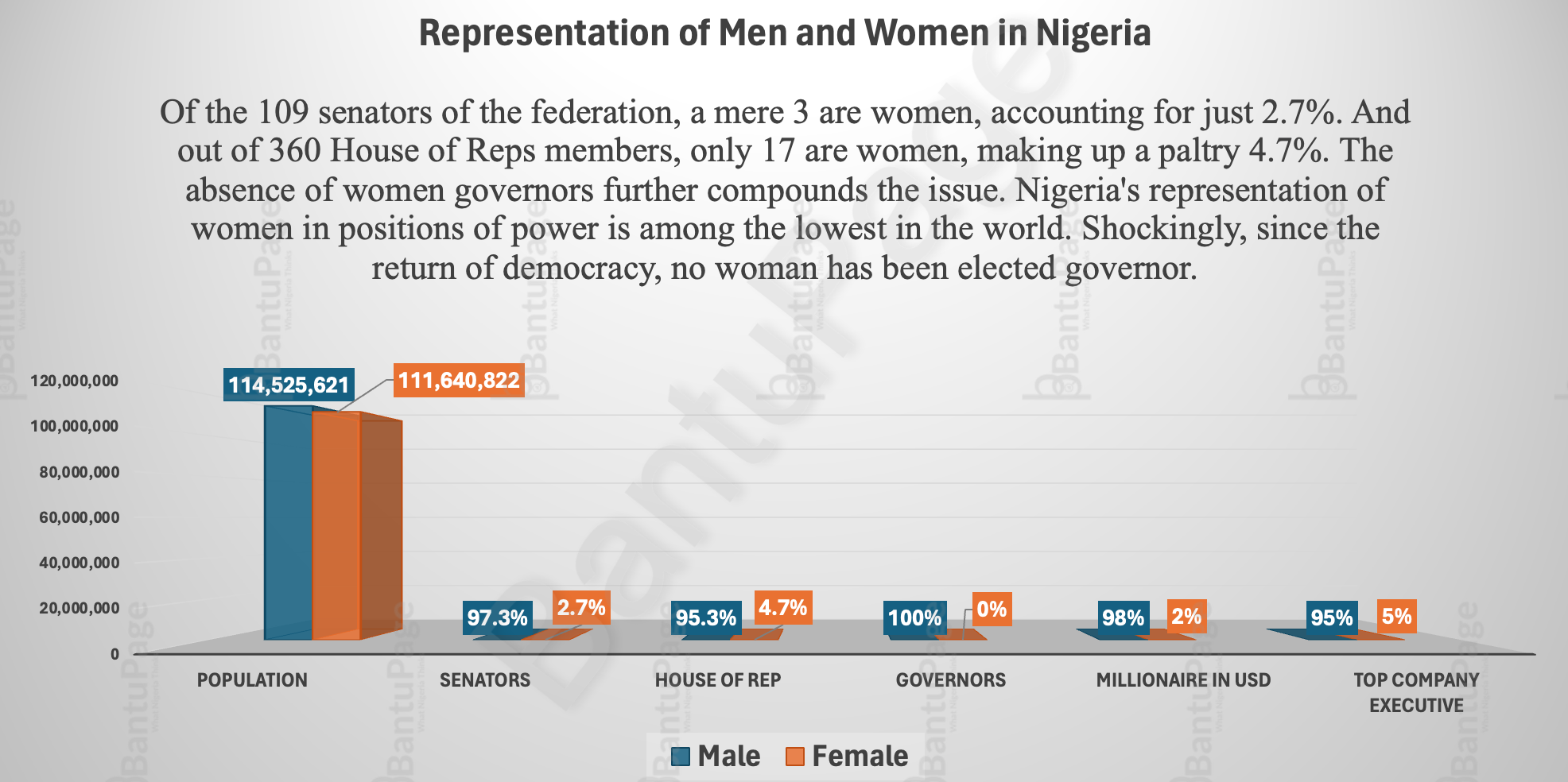
Nigeria’s population: 50.4% Male vs 49.6% Female
The underrepresentation of Nigerian women in key decision-making areas is not just a statistic; it’s a pressing issue that demands our immediate attention. The imbalance is stark, with less than 5% of women in both houses of parliament, not a single female governor, and less than 5% in top executive positions. Even in the millionaire (USD) tally, less than 2% of women are featured, despite making up half of Nigeria’s population.

Despite the nearly equal distribution of men and women in Nigeria’s population, the representation of women in political decision-making and top positions is shockingly low, at less than 5%. This raises a pressing question: Are Nigerian women underperforming or stifled by Nigerian men?
Consider the stark contrast: Nigeria, with its almost even split of men and women, has less than 5% female representation in key decision-making areas. Meanwhile, countries like Rwanda, South Africa, Senegal, Namibia, and Ethiopia boast over 40% of women in their parliaments, while others like Tanzania, Cameroon, Uganda, Angola, and South Sudan have over 30%. This contrast should ignite a sense of urgency and a call for change: why is Nigeria among the worst in the world in this regard?

Even Saudi Arabia requires women to hold at least 20% of seats. Islamic countries like Pakistan, Bangladesh, Saudi Arabia, Iraq, and Egypt all have more female representation than Nigeria. Why? Are Nigerian women failing, or is a systematic bottleneck preventing them from competing with men?
Consider this: Of the 109 senators of the federation, a mere 3 are women, accounting for just 2.7%. And out of 360 House of Representatives members, only 17 are women, making up a paltry 4.7%. The absence of female governors further compounds the issue. Nigeria’s representation of women in positions of power is among the lowest in the world. Remarkably, no woman has won a governorship since the restoration of democracy.
Are women disinterested in politics and leading positions, or is a systemic setup preventing them from reaching their potential in Nigeria? Rwanda, South Africa, Senegal, and Namibia all have 61%, 46%, 46%, and 44% of women in their parliaments. Senegal is 97% Islamic, whilst Nigeria is 51% Islamic, yet it has 46% female representation in its political setup.
Why are Nigerian women lagging so far behind Nigerian men?
By Ikechukwu ORJI





